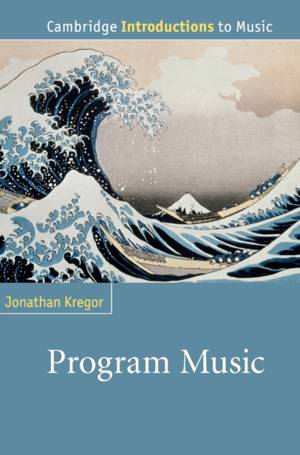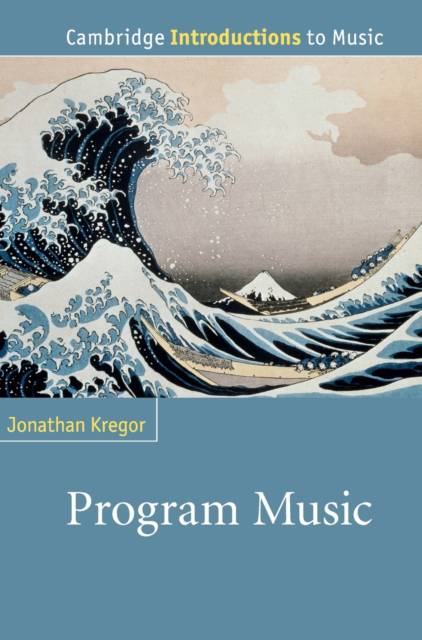
- Afhalen na 1 uur in een winkel met voorraad
- Gratis thuislevering in België vanaf € 30
- Ruim aanbod met 7 miljoen producten
- Afhalen na 1 uur in een winkel met voorraad
- Gratis thuislevering in België vanaf € 30
- Ruim aanbod met 7 miljoen producten
Zoeken
€ 136,95
+ 273 punten
Uitvoering
Omschrijving
Program music was one of the most flexible and contentious novelties of the long nineteenth century, covering a diverse range that included the overtures of Beethoven and Mendelssohn, the literary music of Berlioz and Schumann, Liszt's symphonic poems, the tone poems of Strauss and Sibelius, and compositions by groups of composers in Russia, Bohemia, the United States, and France. In this accessible Introduction, Jonathan Kregor explores program music's ideas and repertoire, discussing both well-known and less familiar pieces by an array of nineteenth- and twentieth-century composers. Setting program music in the context of the intellectual debates of the period, Kregor presents the criticism of writers like A. B. Marx and Hanslick to reveal program music's growth, dissemination, and reception. This comprehensive overview features numerous illustrations and music examples and provides detailed case studies of battle music, Shakespeare settings, and Goethe's Faust.
Specificaties
Betrokkenen
- Auteur(s):
- Uitgeverij:
Inhoud
- Aantal bladzijden:
- 332
- Taal:
- Engels
- Reeks:
Eigenschappen
- Productcode (EAN):
- 9781107032521
- Verschijningsdatum:
- 23/03/2015
- Uitvoering:
- Hardcover
- Formaat:
- Genaaid
- Afmetingen:
- 170 mm x 249 mm
- Gewicht:
- 816 g

Alleen bij Standaard Boekhandel
+ 273 punten op je klantenkaart van Standaard Boekhandel
Beoordelingen
We publiceren alleen reviews die voldoen aan de voorwaarden voor reviews. Bekijk onze voorwaarden voor reviews.











